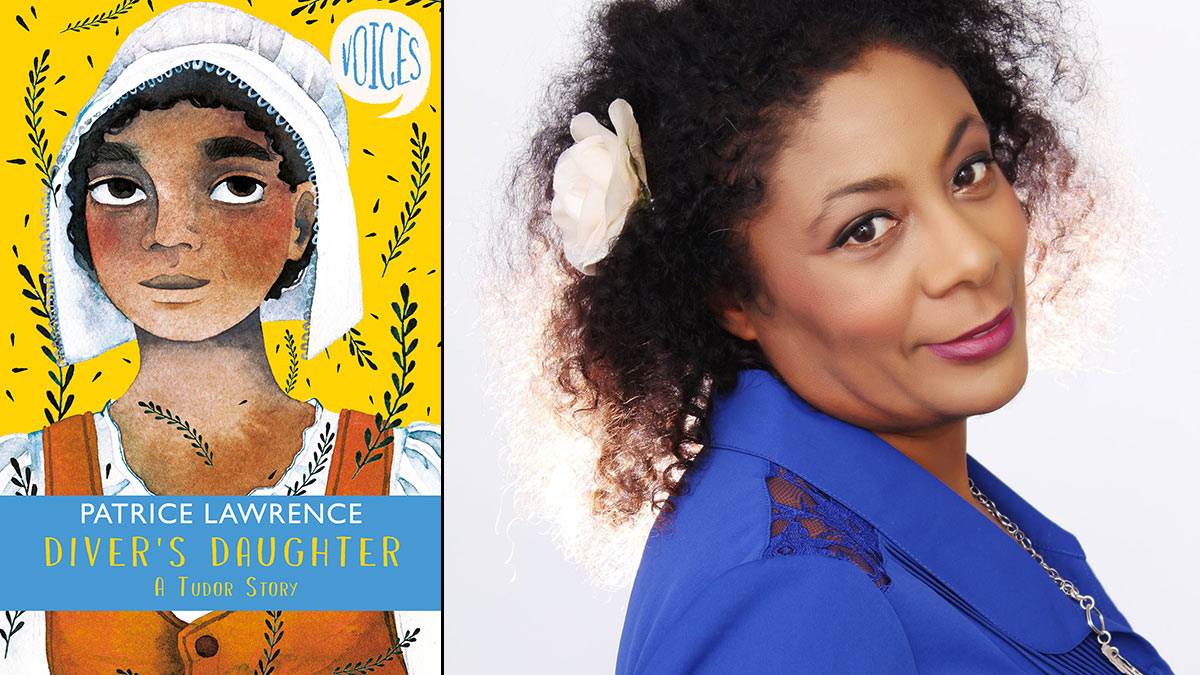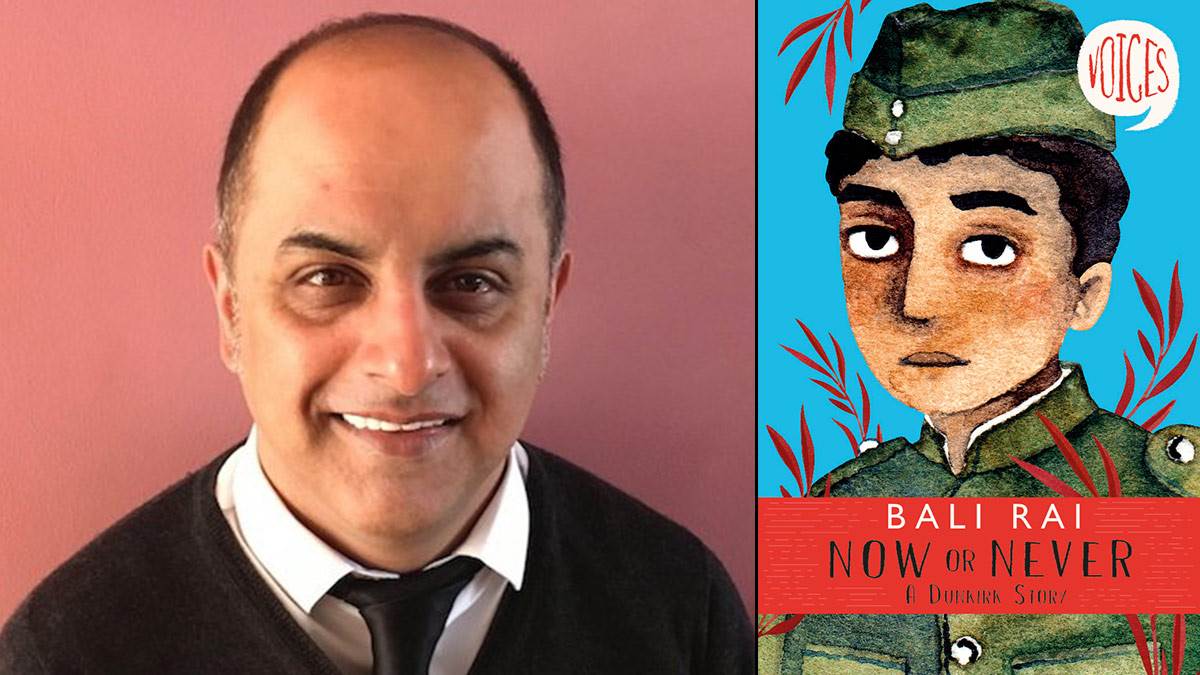'These missing voices are vital': Bali Rai and Patrice Lawrence on writing hidden histories
Published on: 27 June 2019
Top authors Bali Rai and Patrice Lawrence have both contributed to Scholastic's new Voices series, which celebrates untold stories and discovers hidden histories.
We spoke to them both about why it's so important for children to learn about the past this way...

We're really pleased to see some new biographies for children coming out, and especially ones that represent stories and voices that might not have been heard until now. What fascinated you most about the person you wrote about?
Bali: Now or Never was inspired by a group of people, most of whom were members of the Royal Indian Army Service Corps during World War Two. For me, the story revolves around the narrator, Fazal Khan, a fictionalised representation of the actual men of the RIASC, and Captain John Ashdown, who was a real historical figure.
Both characters were fascinating for a number of reasons. For Khan, I was intrigued as to why the subjects of an often brutal Empire would risk their lives for a war fought in foreign lands. Their loyalty, their utter respect for orders and their motto of 'hukum hai', or duty, were all equally fascinating.
For Ashdown, it was about his Indian upbringing, his unflinching moral code and his reciprocal loyalty to his men. This was an English officer who refused a direct order on moral grounds, risking his own liberty to do right by his company.
Patrice: I wouldn't call Diver's Daughter a biography. I wanted to highlight the life of the sixteenth century African diver, Jacques Francis. Not only was he free-diving to help salvage sunken cargo from the bottom of the harbour, but he was also the first recorded man of African descent to give evidence in an English court.
It's quite a big deal, but there is so little recorded information about his life, so it would be tough to write a biography about him. He is a main character in a story featuring a young girl called Eve and her mother, Joan, who was born in the Isle of Mozambique. Joan can dive too. They are just about scraping a living in Southwark when they hear that there is gold to be found in Southampton Waters. They just have to find Jacques Francis to guide them.
Why is it important for children to read about the lives of children from different cultures and ethnic groups to their own, especially in a historical context?
Patrice: I grew up believing that people of colour had no role in UK history other than as servants or enslaved. I was well into my 30s when I found out that there had been Indian soldiers in the Brighton Pavillion when it was used as a hospital in World War Two. Even more frustratingly, I found out that World War One soldiers from the Caribbean stayed in Seaford, just down the road from Brighton. I was born in Brighton and had never known.
As a visibly different person, I often felt that I didn't belong. Having an earlier understanding of the way that different histories entwined and that people who looked like me had a direct impact on iconic moments would have made me feel much less isolated and distant from everyone else.
Bali: There are many reasons why stories like these are important, from promoting greater empathy to a better understanding of history. Reading about the 'other' creates a better understanding of our commonalities as human beings. For most voracious readers there is no 'other', and that can only be a good thing.
We live in a time of great conflict and division, with huge disparities in wealth and shameless scapegoating of certain groups. Reading about those who do not look like us, or live as we do, or even think what we think, is vital in combatting the rise in intolerance seen across our world.
It is vital that we encourage our children to become openminded, tolerant and fair to all, and reading about those we are not will do just that.
In teaching history, we need to understand whose stories we are hearing, and realise that there are plenty of voices that existed, from whom we have not heard. There is an imbalance here and the series helps to redress that. These missing voices are vital to a deeper, fairer understanding of our history.
What does biography offer to children as readers as a form that fiction might not?

Bali: I think there's an immediacy to biography that gives distinctive insights into the lives of fellow human beings that seem more tangible. As a child, I loved reading about fictional characters, but there was something very special about real-life stories, as though the people within them were touchable and easier to emulate. The thought that this person we're reading about actually lived on the same planet and took in the same air is very powerful.
Patrice: I think you can play with the form of biography - fictionalise it, create a scrapbook, tell a a story through letters. Biographies can humanise history and help us see that people we hold up as heroes have their fears and flaws too, like the rest of us.
There are so many forgotten voices and stories in history across so many disciplines: science, music, art, literature, politics and many more. Whose life story do you think children should also know about?
Patrice: The African-American feminist, suffragist and anti-lynching campaigner Ida B Wells. Classical composer Samuel Coleridge Taylor. Abolitionist campaigner Ignatius Sancho.
Bali: For me, that would be a long list of rebels and innovators, and also peace-makers and humanists and sporting heroes who earned little but overcame much. In no real order, they'd include Malcolm X, Marcus Garvey, Bhagat Singh and Udham Singh (Indian revolutionaries), Sophia Duleep Singh, Martin Luther King, Nelson Mandela, Miriam Makeba, Bob Marley, Steve Biko, Aretha Franklin, Billie Holliday, Phoolan Devi, Mary Seacole, Billie Jean King and so many more.
Not all are forgotten, but for those better-known ones, their stories tend to be sanitised or only cover certain aspects of their lives. I believe that we should present such lives as they really were and allow readers, even younger ones in their teenage years, to make up their own minds about the people concerned.
Was there a true story, an account of someone's life, maybe a book or something on TV that really inspired you as a child?
Bali: The biggest impact was made by the Autobiography of Malcolm X, written in conjunction with Alex Haley. I knew about Martin Luther King and idolised the then imprisoned Nelson Mandela, but Malcolm X was a revelation. I had been taught that he was a violent and vengeful person, the opposite to Dr King, but when I read that book, I found the true essence of Malcolm X – warts and all. It blew me away and began a lifelong desire to learn more about unsung heroes.
Patrice: For me, it was my headmaster delivering an assembly about Jesse Owens. Sitting as the only black kids in a hall full of white children, I felt so proud to be black. That hadn't happened often.
Diver's Daughter and Now or Never are both out now.
Topics: Historical, Diversity (BAME), Features






Add a comment